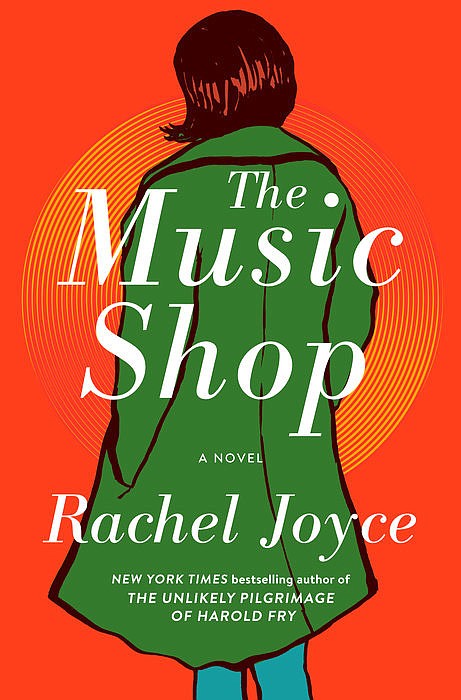Rachel Joyce's fifth novel, "The Music Shop," centers on a lanky, disheveled music savant named Frank, who runs a record store in London, and a mysterious woman in a green coat with whom he falls madly in love. Get the girl, lose the girl, try to get the girl back again-it's a classic rom-com structure. But Joyce makes it fresh.
As with her earlier novels ("The Unlikely Pilgrimage of Harold Fry," "The Love Song of Miss Queenie Hennessy"), it is the madcap ensemble cast that brings the book to wacky, poignant life. Like Anne Tyler, Joyce has a knack for quickly sketching characters in a way that makes them stick.
There's the priest, who drank himself out of a job and now runs a sad shop selling plastic Jesuses and leather bookmarks. There's the tattoo artist, "a short, blocky young woman with a Mohawk that she dyed different colors to suit her mood-generally very dark colors that were not to be found in nature." She's in love with Frank, though she would never, ever tell him.
There's Kit, the endearingly eager shop assistant who is constantly breaking things. And the Williams brothers, who run a funeral home and who are always together and who often hold hands.
This ragtag band of merchants on Unity Street are the backdrop and the Greek chorus to Frank's difficult love affair.
Frank is a man who has been hiding all his life from his emotions. He is exquisitely in tune with everyone else's-he can look a person in the eye and know exactly what piece of music that person needs, Vivaldi or John Coltrane or Johnny Cash or the Four Seasons or Miles Davis or "Concerto for Two Violins in D Minor" by J.S. Bach. (Joyce's full list is on Spotify at bit.ly/TheMusicShopPlaylist)
With his music recommendations, "Frank had helped them through illness, grief, loss of confidence and jobs, as well as the more daily things like football results and the weather. Not that he knew about all those things, but really it was a matter of listening, and he had endless patience."
When the book opens, it is the 1980s and Frank has settled in this ramshackle, down-and-out section of London where he sells records. Only records. No CDs. No tapes. You can go to Woolworths for those, he notes.
As with Joyce's earlier character of Harold Fry, Frank is looking for connections. But he wants connections that are once removed-connections through music, not through any kind of true human contact.
When a mysterious woman wearing a green coat and with eyes as black as vinyl faints outside his shop, everything he has held so closely inside him starts to crack. And then, just as quickly, she disappears.
Music permeates this book-Frank's stories about composers and musicians, his passionate descriptions of music, the connections he draws between seemingly dissimilar records (he pairs the Brandenburg Concertos, for instance, with the Beach Boys' "Pet Sounds"), and the importance of silence-the pauses in a piece, the breaks between songs, even the time required to flip an album over to the other side.
And when Frank retreats into a silence that is about to engulf him, the ragtag community on Unity Street knows just what to do.
This is a touching, sometimes funny book about surviving change, the power of music and the importance of having a community-wacky or not. As with all of Joyce's books, it will surprise you.

